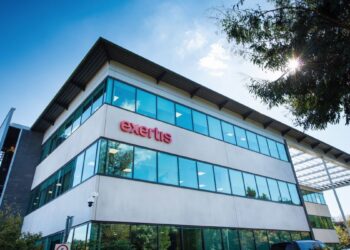Components manufacturer and distributor Origin Storage is breaking out of its B2B stomping ground with an entry into the gaming space.
Founded in 2002, Origin Storage draws 65% of its circa £16m annual revenues from its own-branded SSDs and other hardware, and the remainder from its distribution of third-party brands. It counts Dell as its largest customer.
Game changer
Talking to IT Channel Oxygen, Managing Director Stuart Eling revealed that the Basingstoke-based outfit is betting on a website relaunch and move into gaming to boost sales heading into 2024.
Headed up by new recruit Hiten Solanki, a new gaming division will target etailers like Ebuyer and Scan, as well as PC builders.
“We’ve always been B2B, and we’ll always have that B2B customer base, but B2C is what we’re looking to drive into next,” Eling said.
A new website set to go live in October will enable Origin to extend its reach into smaller SMB resellers who prefer to operate on a self-service basis, meanwhile, Eling said.
“The current website isn’t fit for purpose for where we’ve got to as a business, but the new one will rival [competitors] who are much bigger than us. It’s a full e-commerce platform,” he explained.
“Customers can place orders, check order history and ETAs, get proof of deliveries – the whole nine yards.
“That will really allow us to drive into some of the smaller tier twos who don’t want to talk to the guys on the phone or have us visit. They know what we do and just want to go on our website, find the price, place the order and move onto the next customer, so it’s going to open the door to that type of customer.”
‘The tap has been turned back on’
Eling picked out Exertis-owned Hypertec as among Origin’s closest peers, as well as Kingston and Crucial and their distribution partners such as Simms International and CMS Distribution.
Origin Storage has grown the size of its third-party distribution business in recent years, adding brands including iStorage and Qnap in storage and accessories specialist Urban Factory, he pointed out.
“While the margins aren’t fantastic, [distribution] helps with mindshare and reinforcing the name out in the market,” Eling said.
With SSD prices falling through the floor, the period from October 2022 to May 2023 was “a real challenge”, Eling admitted, before adding that since then “the tap has been turned back on”.
“We are having to sell three times as much product to hit the same revenue numbers,” he said.
“But the last three months, it’s turned on its head. The price has bottomed out and we’re hearing that prices are going to start increasing. People are a bit more confident in spending.”
Doug Woodburn is editor of IT Channel Oxygen
















